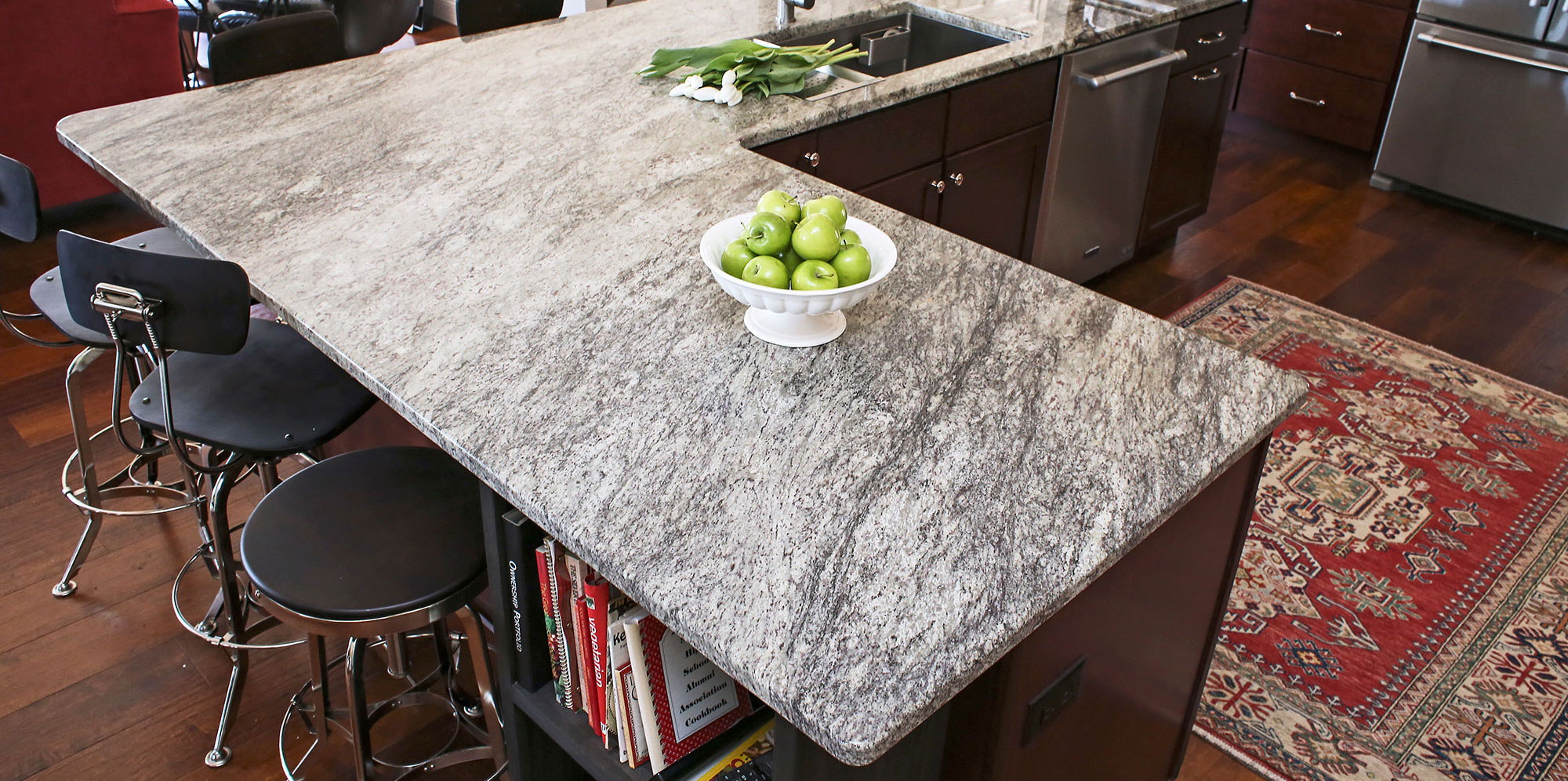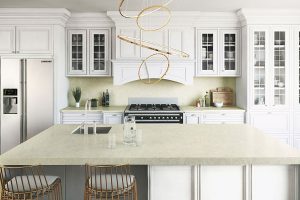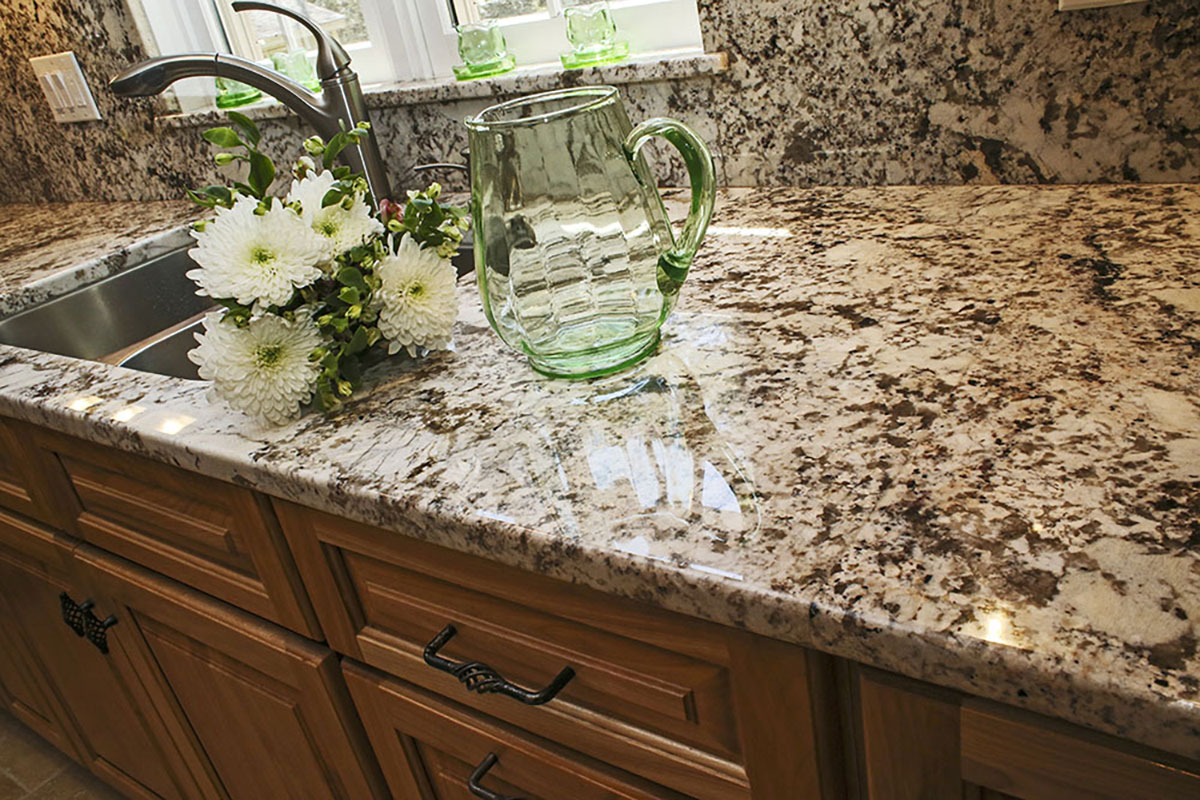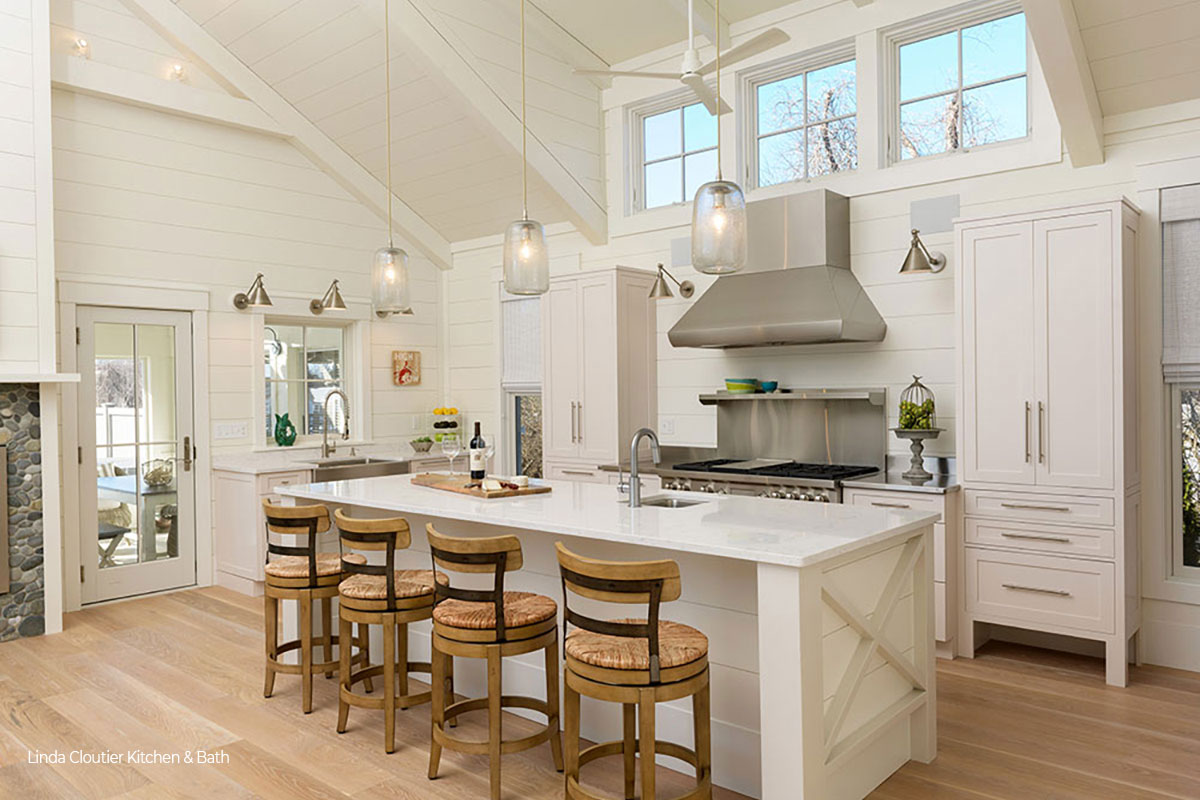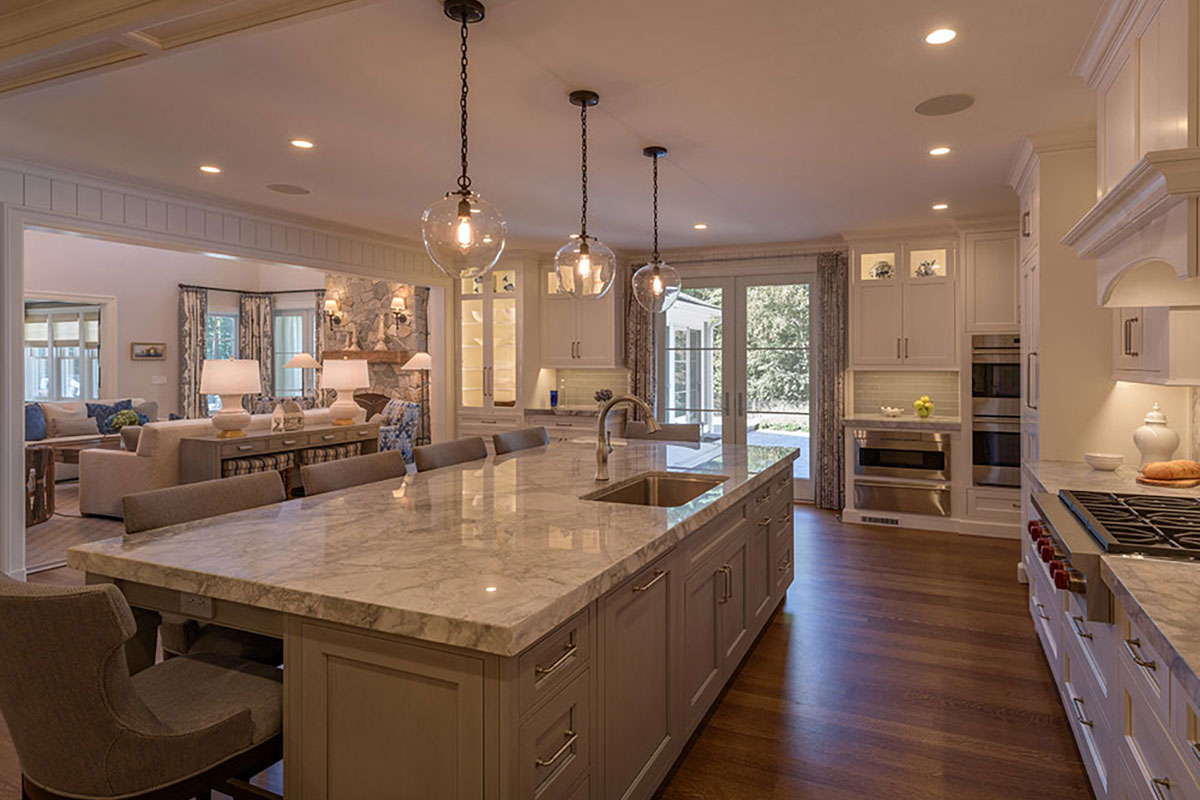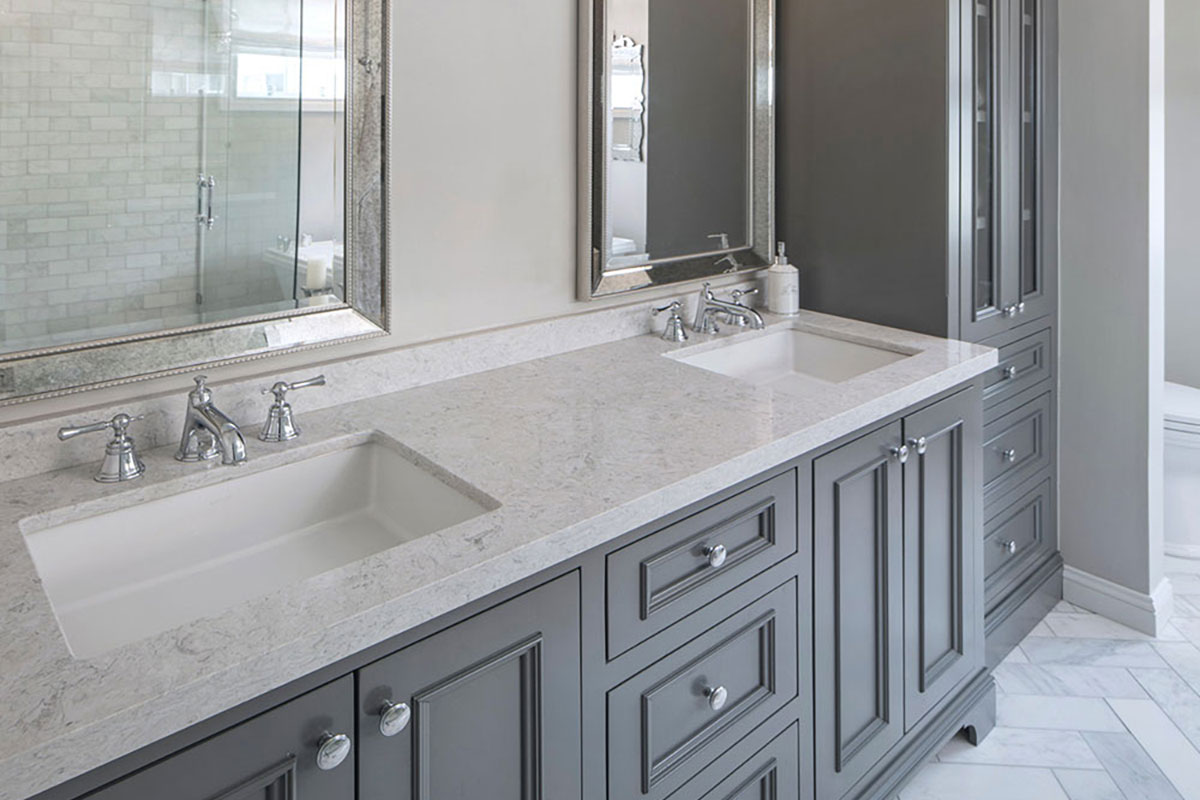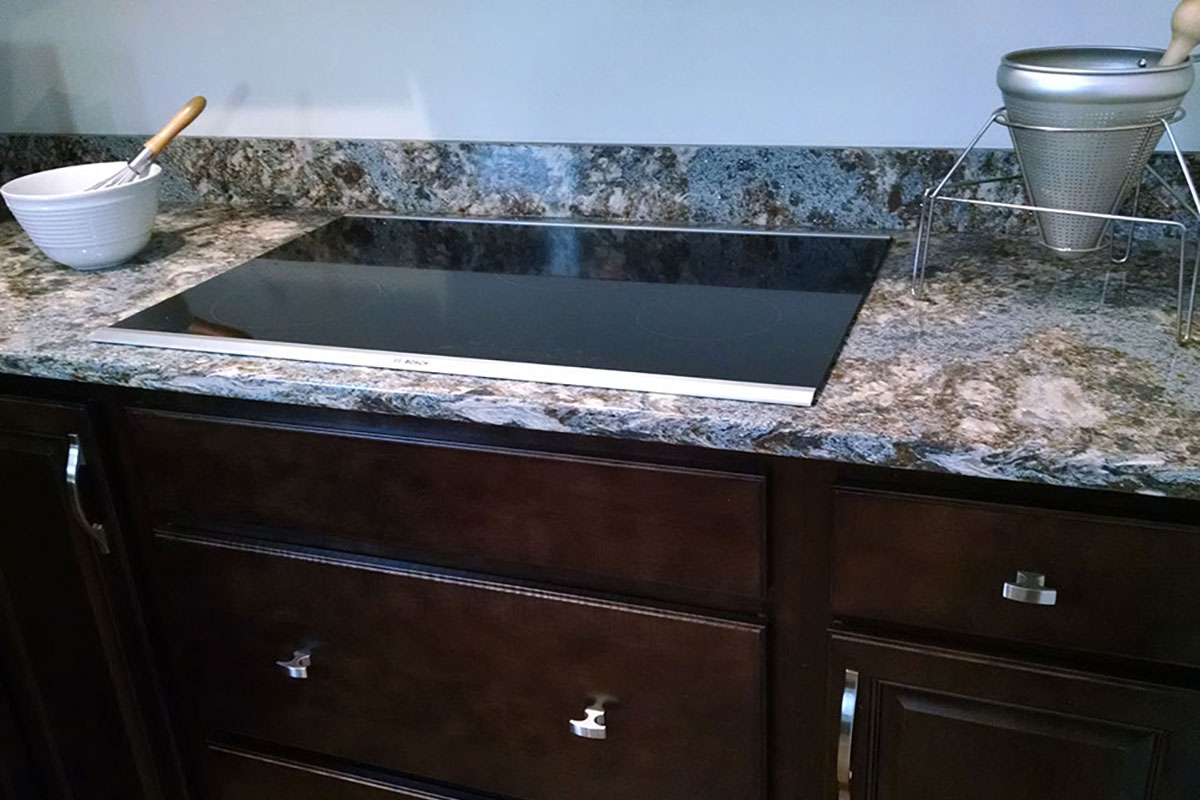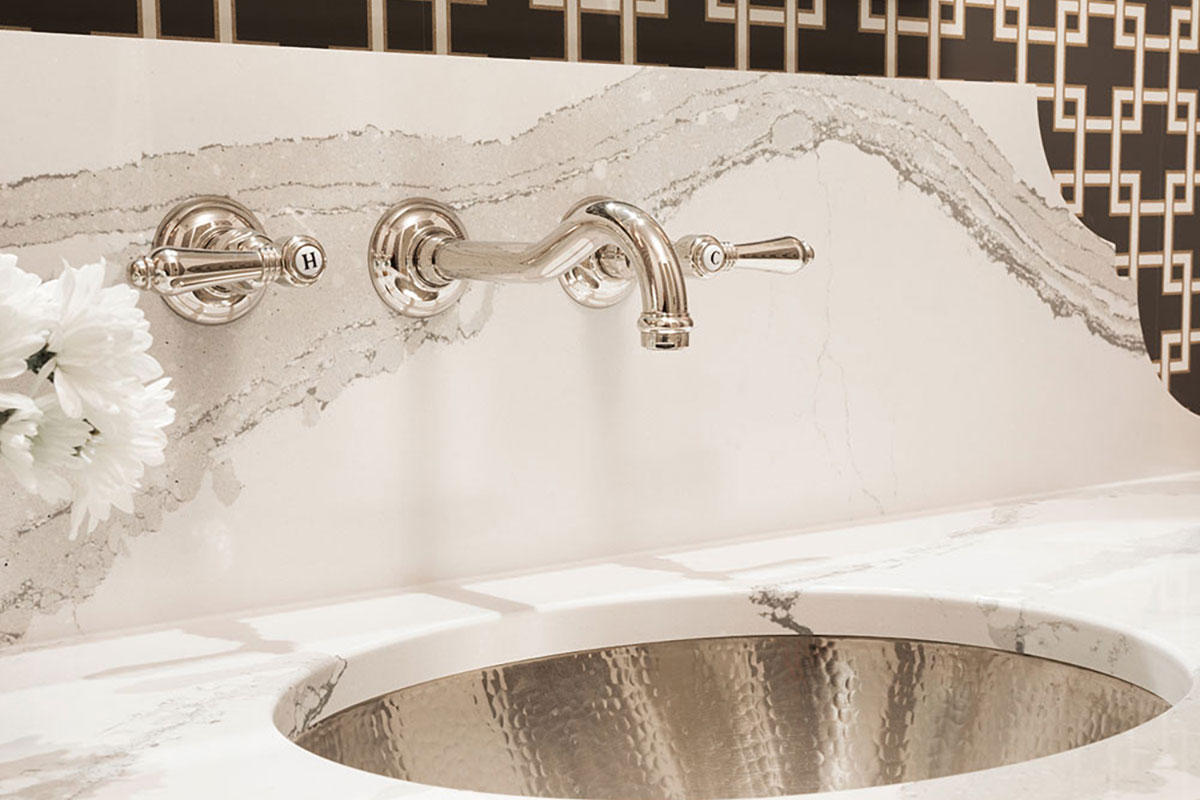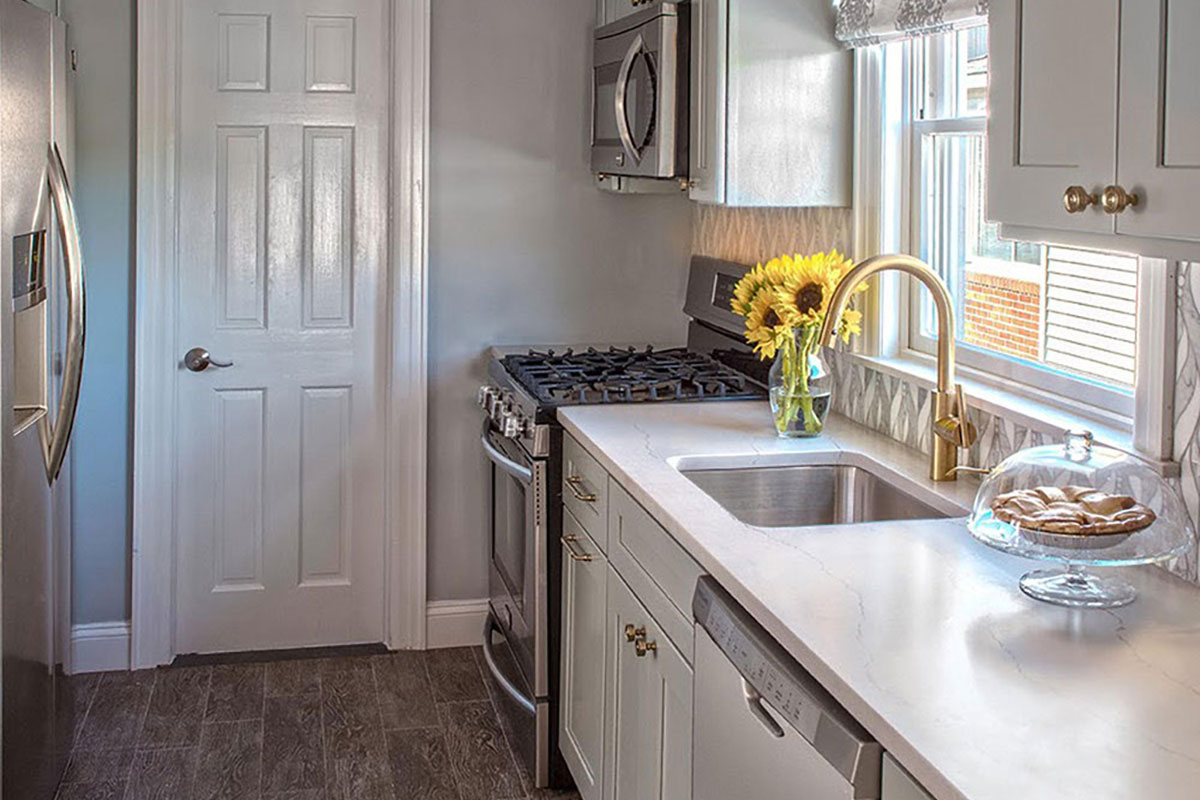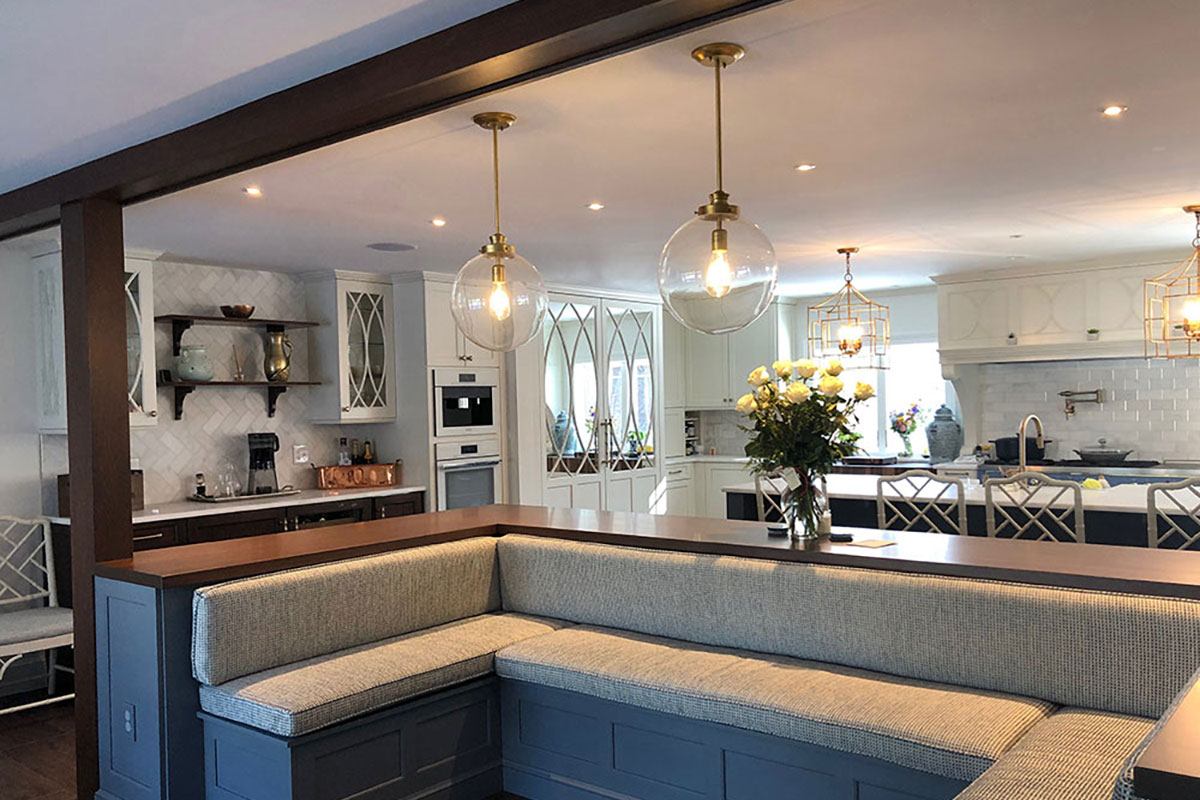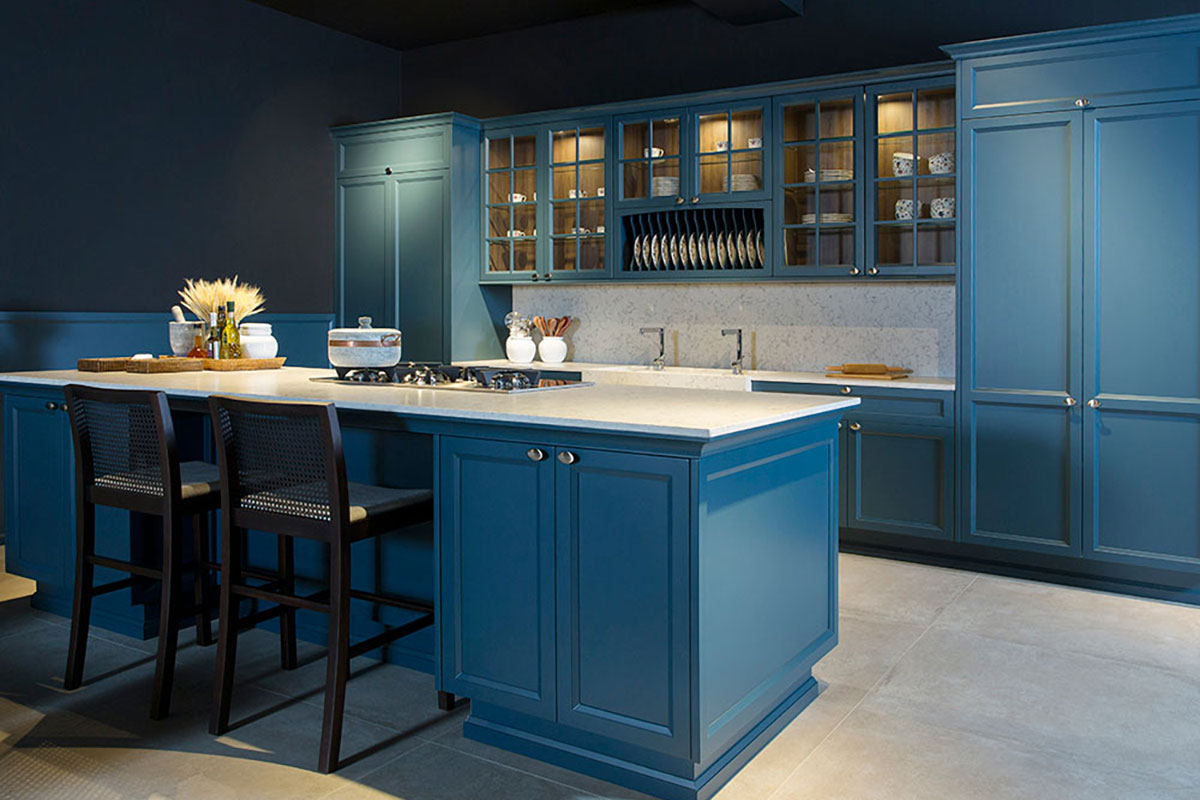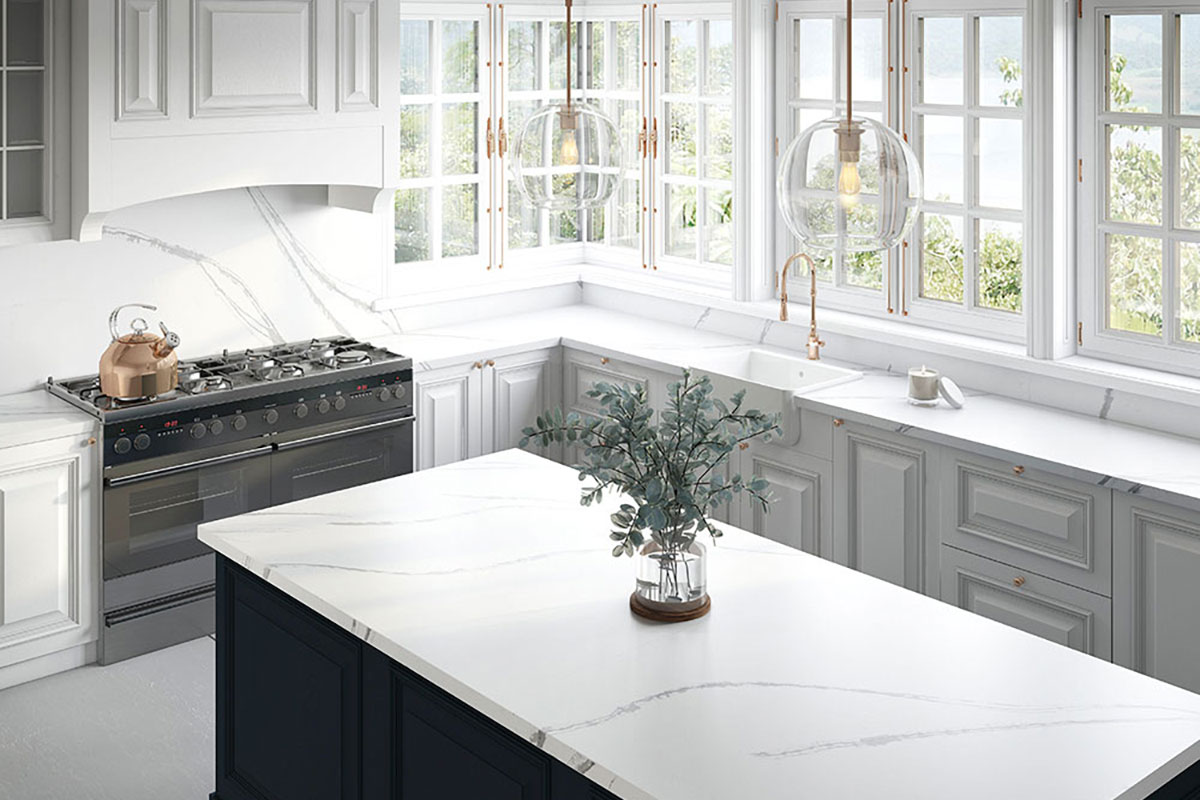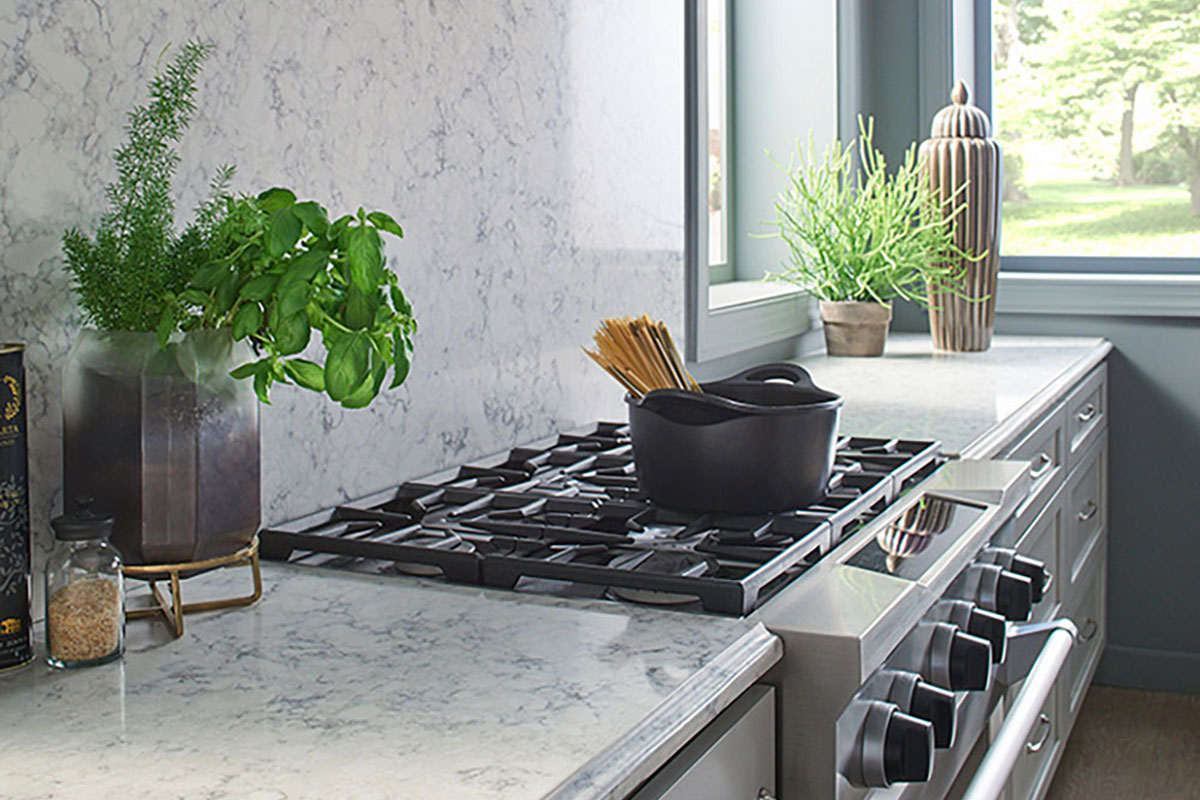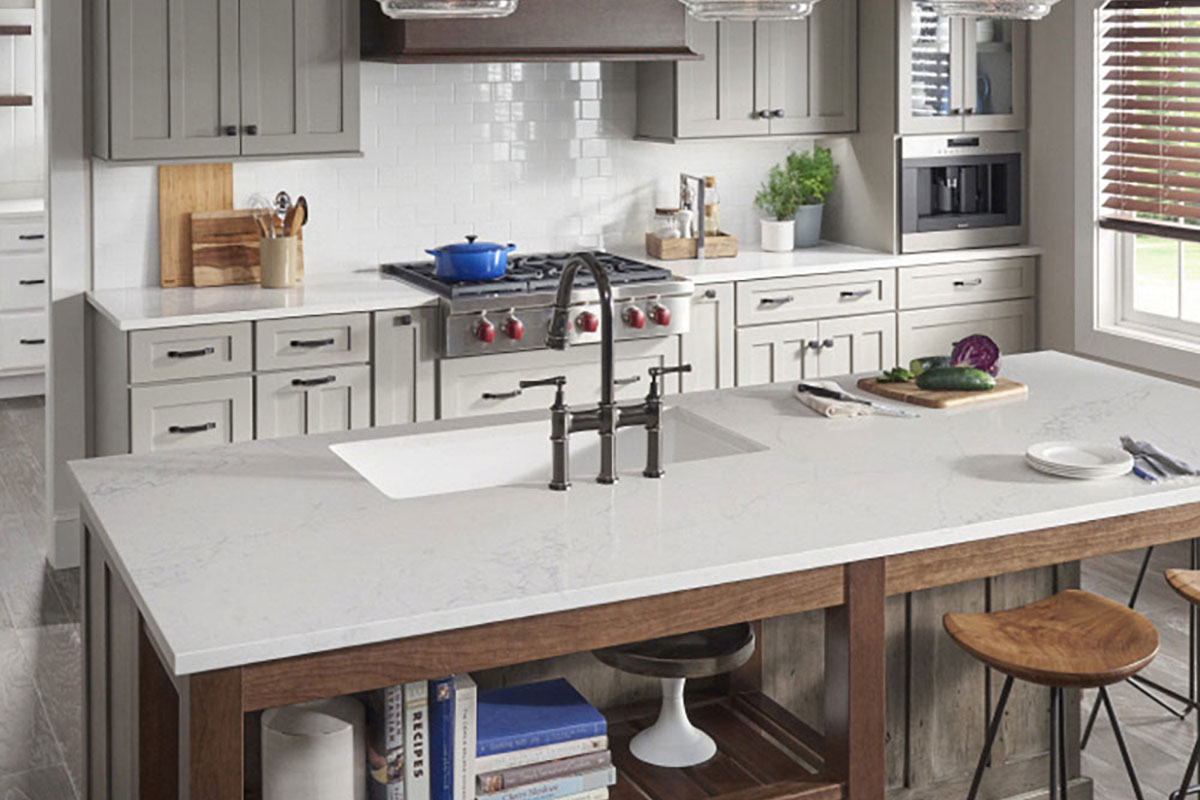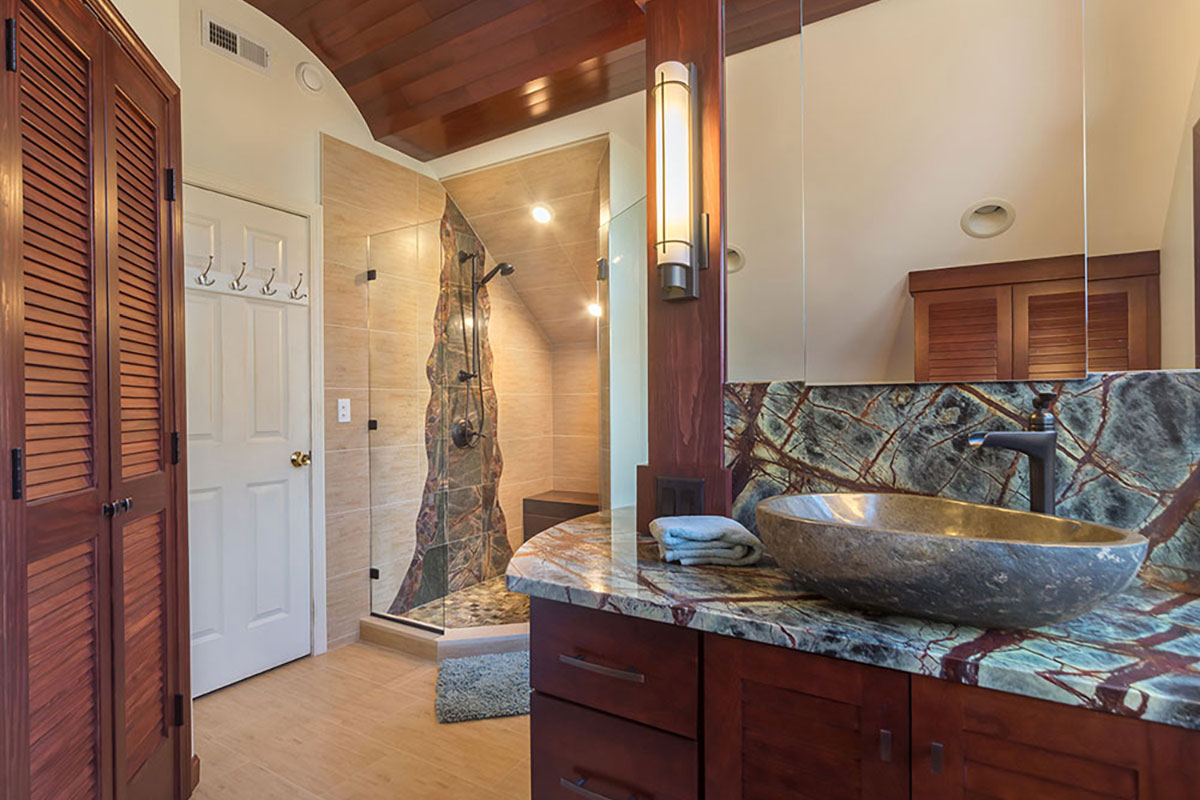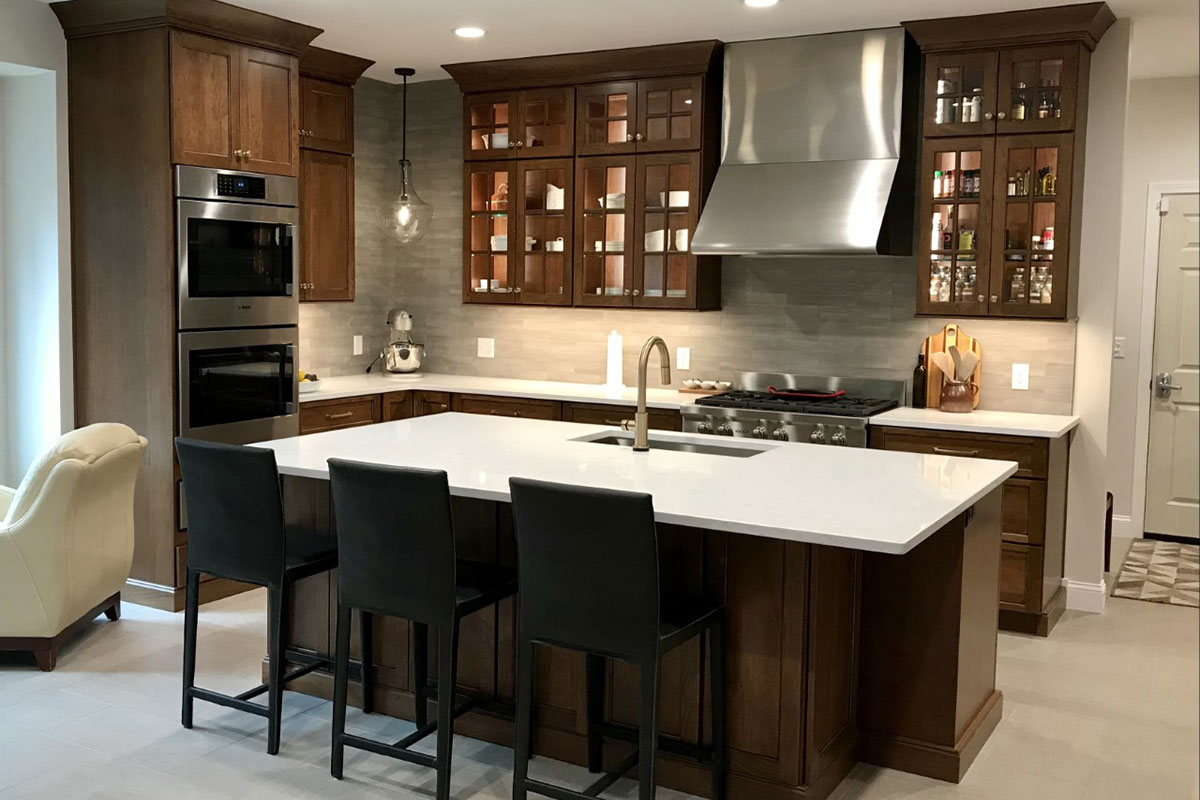
Granite
An extremely durable material that assures a lifetime of beauty. It is recommended for any countertop use. Granite is resistant to heat. Hot dishes and pans from the oven or stove will not damage a granite countertop. Also, cutting on granite will not scratch or damage the surface, though it will dull your cutlery.
Granite is second in hardness to diamonds. Granite comes in a wide variety of colors, grains, and movement. Price ranges from least to most expensive. Despite granite’s hardness, the annual application of impregnating sealer aids stain resistance.

Marble
A more delicate stone, softer than many other natural stones. Marble is softer and more susceptible to staining, thus more frequent sealing is recommended. Marble is recommended for vanities, fireplace surrounds, tables and tub decks. While in the kitchen, marble should be used cautiously and the customer educated about its unique wear and maintenance requirements.
Marble comes in many different colors, usually heavily veined, revealing many grains and is favored for its beauty and design. For stain resistance, sealing with an impregnating sealer is recommended every 3-6 months, depending upon use.

Soapstone
A very soft, yet dense stone made of a variety of talc. It has a smooth “soapy” feeling. It is a material that is durable and is easily worked, as is evidenced in farm kitchens where the stone could be cut by ordinary saw techniques. Soapstone retains heat, withstands the influence of low or high temperatures. It naturally resists stains, including chemicals and acids. Soapstone is useful for sinks and countertops, laboratory tops, and fire resistant surfaces. Its use is applicable generally in any area, including kitchen, laundry, bathroom, fireplace, tables, tub decks and floor tiles.
Soapstone offers a limited color range from dark gray to bluish or greenish gray, and darkens with age. Mineral oil or dry wax will protect the surface and is the only type of sealant necessary. Slab size is generally smaller than other choices.

Quartzite
Quartzite is a natural stone that is harder than granite as it’s composed almost entirely of quartz. Quartzite colors are typically white or light in color due to its composition. Unlike marble, quartzite is a great choice for the kitchen due to its ability to resist etching from cooking acids like lemon juice and vinegar. Although quartzite is appealing due to its durability and hardness, we recommend sealing annually.
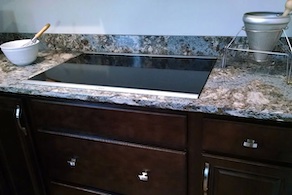
Quartz
Quartz is an engineered stone, created by combining natural quartz crystals with resin binders and pigments. This process results in a non-porous, extremely durable material that is highly resistant to stains, scratches, and heat. This versatility makes quartz a popular choice for a variety of design styles and applications, from kitchen countertops to bathroom vanities. While quartz is highly resistant to damage, it is recommended to use cutting boards and trivets to protect the surface from potential scratches and heat damage.

Porcelain
Porcelain is a highly durable and versatile material, created from refined clay and fired at high temperatures. This process results in a dense surface that is resistant to stains, scratches, and heat. This stone comes in a wide array of colors and patterns making it a popular option for unique design styles. Its low maintenance requirements and long-lasting durability make porcelain a practical choice for busy households.

